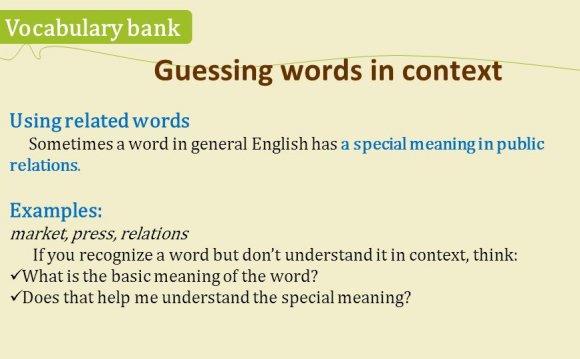

Featured Author:
Rachel Neal
Rachel may be new to the world of Marketing, but she's no novice when it comes to public relations. Having begun as an editor/researcher for a national lifestyle and travel magazine, daily interaction with PR professionals pushed her to make a change in direction.Wanting to make the news, not just report it, Rachel is now a publicity assistant, learning from the best in book publishing PR.
Outside of the office, you'll find her acting like a typical Santa Barbarian (and denying she is one), hitting up the beaches, tennis courts, movie theater, and local shops. Reading, writing, films, concerts, Rockband, Disneyland, scrapbooking, Christmas, and photography are on her list of faves, and she has recently become slightly obsessed with Fantasy Hockey, So You Think You Can Dance, her cat, social networking sites, and caramel brulee lattes.
Get to know Rachel better by checking out her profile!
More articles from this author:
Your resume doesn’t say “B.A. in Public Relations” on it? Don’t panic—you aren’t immediately disqualified from the PR race. In fact, you’ll be hard-pressed to find an acclaimed university that offers a B.A. in Public Relations. What you will find is a number of great colleges (both state and university) that offer comprehensive Communications majors, which include courses in media and public relations. If this is the track you are already on, stay put.
But, if you aren’t on track as a Com major, or your school days are a distant memory, you can still make sure you have the necessary and desired skills to be in public relations.
Take me for example!
I went to the University of California, Santa Barbara and received my B.A. in English. Communications was right above Physics and Mechanical Engineering on my list of least probable major options. I was never a big “talker” and didn’t see myself being in front of cameras—and ignorantly (and ever-so-apologetically) I thought Communications classes were filled with ditsy girls who couldn’t otherwise cut it in “real majors.”
Moreover, I’ve always gravitated toward writing and reading—two extremely important skills to have in public relations. And, because journalism wasn’t an option at UCSB, I stuck with English to help hone my skills.
Check out the following skills I think are important to have when applying for PR jobs (Communications degree or not!):
1. Time/task management: You may find yourself to be in situations where multiple clients and projects are all labeled “important.” Being able to recognize deadlines and high versus low priority tasks is a valuable skill.
2. Organization: A key attribute for any employee, especially in an office. When you start at the bottom of the ladder, keeping yourself and your superiors organized can help you climb toward more responsibility. And, your boss’ newly attained free time means more instances for them to sit back, relax and notice your hard work.
3. Computer skills: Typing is a must. You’ll be doing a lot of email work, sending press releases, email alerts, proposals, etc. Knowing how to navigate Microsoft Word, Excel, PowerPoint, and Outlook is important. Adobe Acrobat, Photoshop, Quark, InDesign, InCopy, and web page-creating programs are also good to brush up on. If you don’t have experience using these programs, I suggest taking a class at your local city college or picking up a how-to manual from the bookstore. In this century, technophobia is not an option.
4. Phone communication skills: The phone rings off the hook in PR. Be able to speak eloquently, professionally and with an awareness of when you should direct a conversation to someone more capable. Don’t be afraid to say “I don’t know the answer to that question, but I will gladly find out and get back to you as soon as possible.” In PR, it’s better to be correct than to be quick (though the media may disagree, and sometimes quick is imperative). Again, be aware of priorities and deadlines if the requests involve media outlets. Journalists typically need answers yesterday.
5. An eye for detail: If you are in a position to look over documents or facts for article verification, patience and paying close attention are very important. If you glance over an incorrect fact, you could do harm to your company.
Brush up on some of these skills and you’ll go far!
“Everything You Want to Know About PR…” is a bi-monthly column from Rachel Neal, a novice to the public relations industry. Rachel invites you to join her on her journey from peon to PR professional, as she attempts to help other PR neophytes on their own career paths.














